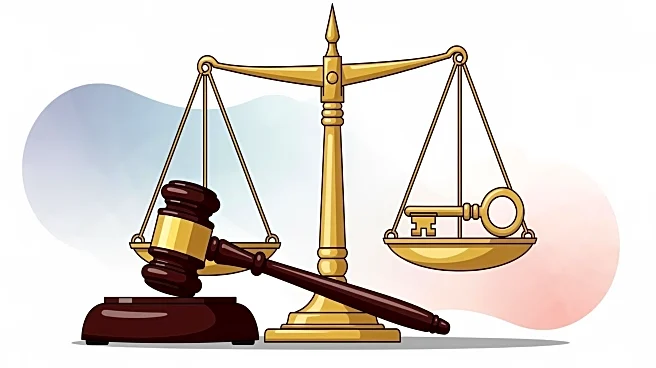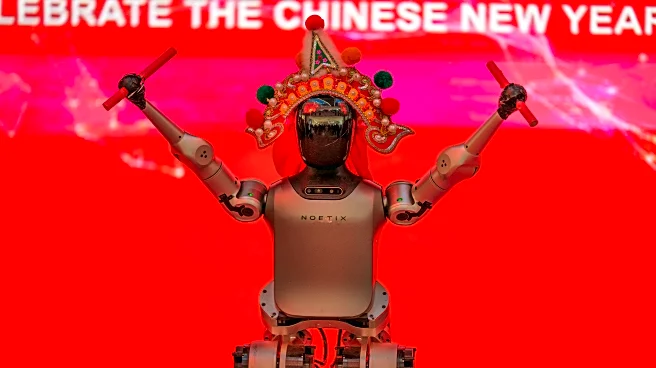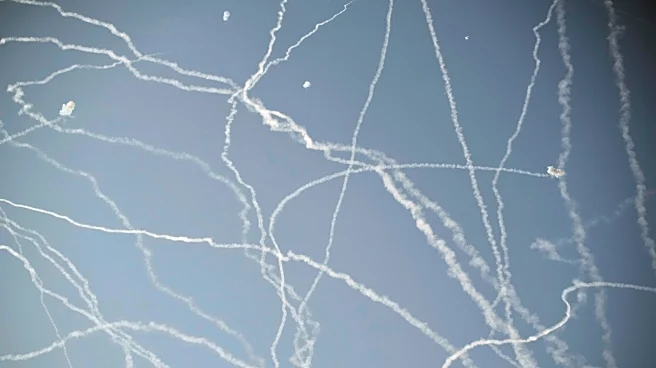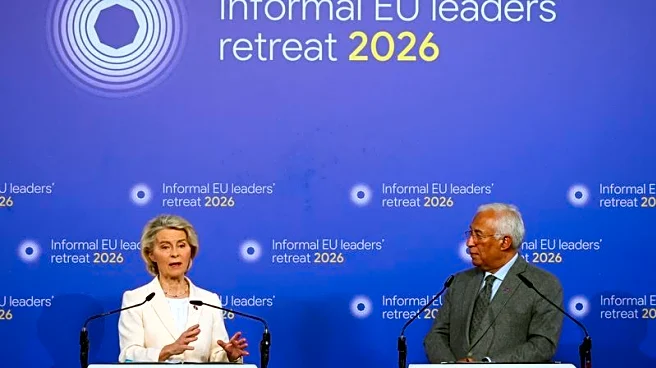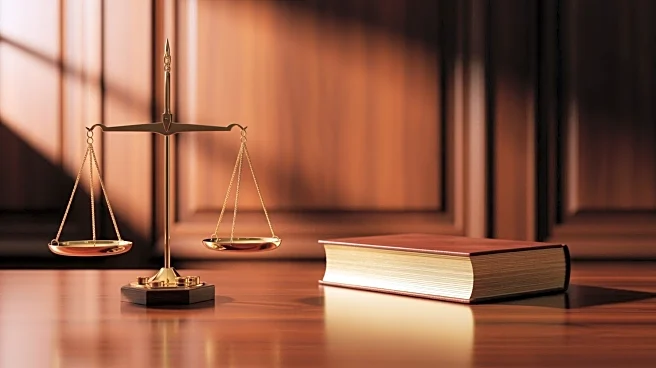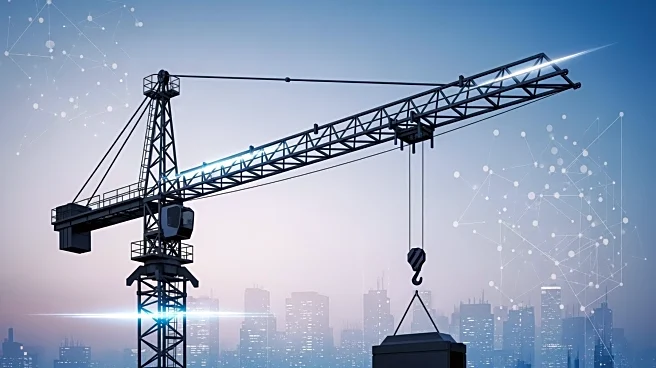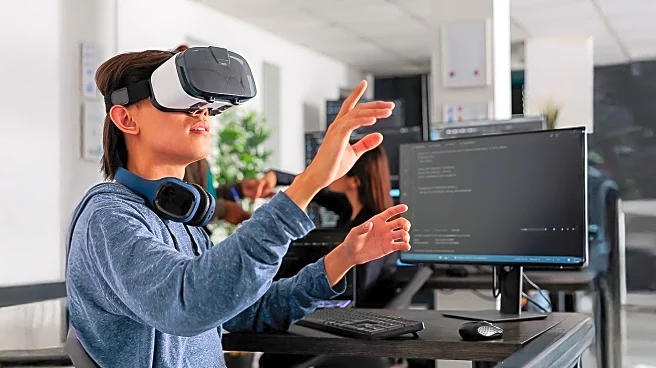What's Happening?
Mahmood Mamdani, a Columbia University professor and father of New York City mayoral frontrunner Zohran Mamdani, has joined the Gaza Tribunal, a group advocating for legal action against Israel and its
Western allies over alleged war crimes in Gaza. The tribunal, which lacks formal judicial authority, aims to gather evidence against Israel following the October 7, 2023, Hamas attacks that resulted in significant casualties and hostages. The group includes controversial figures such as Ramy Abdu, accused of ties to Hamas, and Richard Falk, a former UN envoy barred from Israel. The tribunal's formation reflects dissatisfaction with the slow progress of international justice systems in addressing the Israeli-Palestinian conflict.
Why It's Important?
The involvement of prominent academics and activists in the Gaza Tribunal highlights ongoing tensions and differing perspectives on the Israeli-Palestinian conflict. The tribunal's actions could influence public opinion and international discourse, potentially affecting diplomatic relations and policy decisions. Critics argue that the tribunal's association with individuals linked to Hamas undermines its credibility, while supporters view it as a necessary response to perceived injustices. The tribunal's activities may also impact the political landscape in the U.S., particularly for figures like Zohran Mamdani, whose familial connections to the tribunal could become a focal point in his political career.
What's Next?
The Gaza Tribunal plans to continue its efforts to document and publicize alleged war crimes, potentially increasing pressure on international bodies to address the conflict. The group's activities may provoke responses from Israeli and Western governments, as well as from pro-Israel advocacy groups. The tribunal's future actions and the reactions they elicit could further polarize opinions on the Israeli-Palestinian conflict, influencing both domestic and international policy discussions.
Beyond the Headlines
The Gaza Tribunal's formation underscores broader debates about the role of non-state actors in international justice and the effectiveness of existing legal frameworks in addressing complex geopolitical issues. The tribunal's activities may also raise ethical questions about the balance between advocacy and impartiality in human rights work, particularly when associated with controversial figures or organizations.
